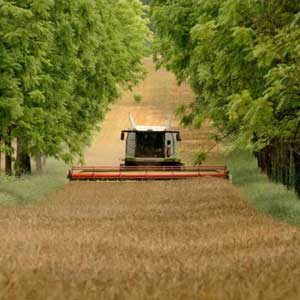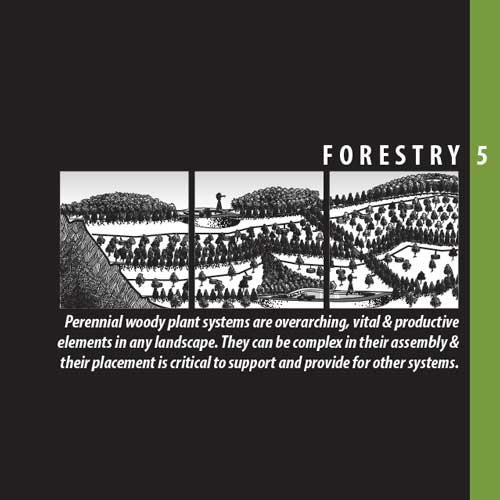For Curious Minds 🧠
Handbook Outline
The 5. Forestry chapter contains 177 pages, 120 diagrams and 52 tables. The table of contents is as follows:
Introduction to the Forestry Layer
5.01 – Applying the Forestry Layer
FUNCTIONS:
5•02 – Forests
5•03 – Fauna
5•04 – Mycorrhiza
5•05 – Saprophytes
5•06 – Ecological Succession
SYSTEMS:
5•07 – Layouts
5•08 – Garden Agriculture Integration
5•09 – Species Index
5•10 – Plant Establishment Densities
MANAGEMENT:
5•11 – Pruning
5•12 – Thinning
5•13 – Coppice
HARVESTING:
5•14 – Fruit & Nuts
5•15 – Timber
5•16 – Forage
MONITORING:
5•17 – Pasture
5•18 – Timber Products
5•19 – Growth Stages
PROPAGATION:
5•20 – Small-Scale
5•21 – Medium-Scale
5•22 – Grafting
5•23 – Budding
FIRE:
5•24 – Integrated Fire Management
APPENDICES:
5.1 – BBCH Scales
5.2 – Thinning Volumes and Basal Areas
5.3 – MLA Pasture Assessment Sheets
5.4 – MTG Field Booking Sheet
5.5 – MTG Tree Spacing and Stocking Guide
5.6 – Calculation of Tree Volume
5.7 – Paddock Condition Score Sheet
5.8 – Forage Digestibility for Different Livestock
5.9 – Vegetable Planting Guide
5.10 – Classification of Different Types of Fruits
5.11 – Cacao Agroforestry Mixed Species Planting
5.12 – PRO Silva Principles
References & Further Reading
Glossary
Glossary








